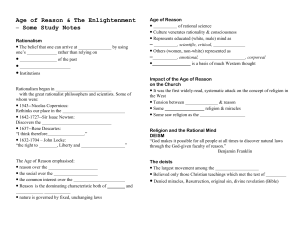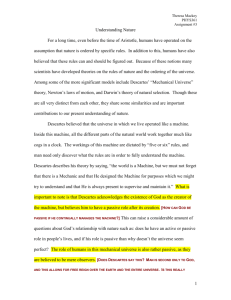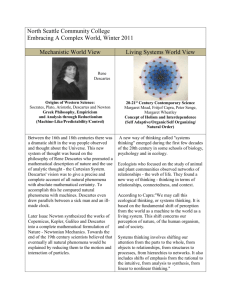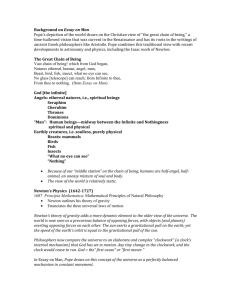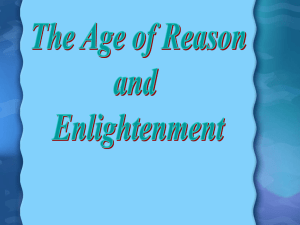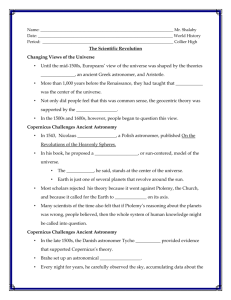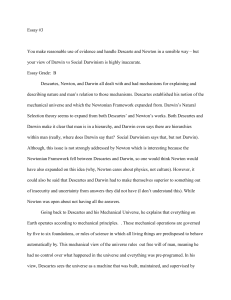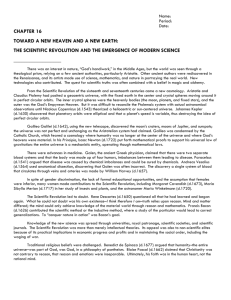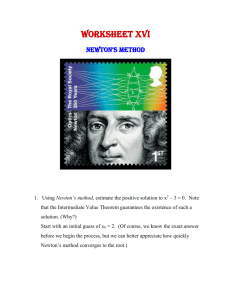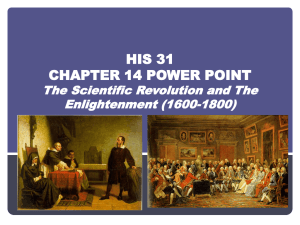morris
advertisement
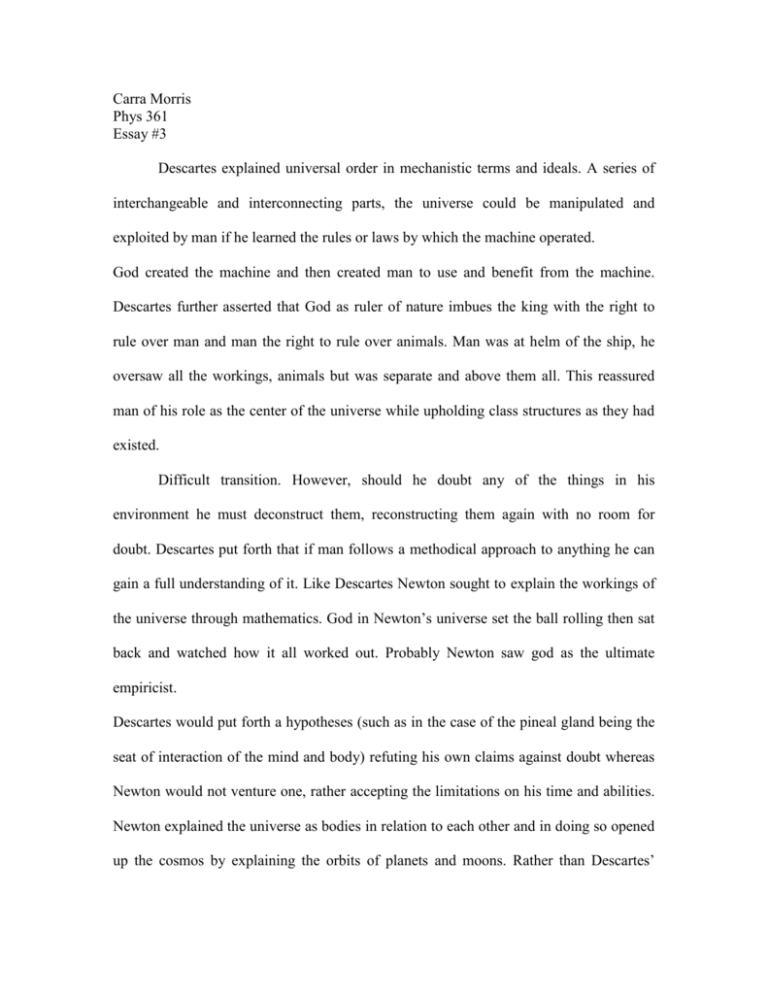
Carra Morris Phys 361 Essay #3 Descartes explained universal order in mechanistic terms and ideals. A series of interchangeable and interconnecting parts, the universe could be manipulated and exploited by man if he learned the rules or laws by which the machine operated. God created the machine and then created man to use and benefit from the machine. Descartes further asserted that God as ruler of nature imbues the king with the right to rule over man and man the right to rule over animals. Man was at helm of the ship, he oversaw all the workings, animals but was separate and above them all. This reassured man of his role as the center of the universe while upholding class structures as they had existed. Difficult transition. However, should he doubt any of the things in his environment he must deconstruct them, reconstructing them again with no room for doubt. Descartes put forth that if man follows a methodical approach to anything he can gain a full understanding of it. Like Descartes Newton sought to explain the workings of the universe through mathematics. God in Newton’s universe set the ball rolling then sat back and watched how it all worked out. Probably Newton saw god as the ultimate empiricist. Descartes would put forth a hypotheses (such as in the case of the pineal gland being the seat of interaction of the mind and body) refuting his own claims against doubt whereas Newton would not venture one, rather accepting the limitations on his time and abilities. Newton explained the universe as bodies in relation to each other and in doing so opened up the cosmos by explaining the orbits of planets and moons. Rather than Descartes’ machine, Newton saw a ballet. Newton removed man, once again, from the center of the universe, but gave him a language in which to decode the workings of the universe. I don’t really understand Darwin as an “ordering system” per se, however, his theories have certainly been used in order to rationalize others belief of a “natural order.” Perhaps in the sense that Darwin gave order to the development of species over time, his theories could be seen as an ordering system. Is there a real necessity to this paragraph or could this be kept as a thought? The moral and social implications of each of these “systems” are similar in that they are all far-reaching and still relevant. Descartes has given us, for better or worse, a worldview in which we can either accept responsibility for the use of the earth and its inhabitants, with or without souls, or which we can exploit without remorse. Another result of the influence of Descartes has been a division of the body and mind. We still refuse to treat holistically the body, as though the mind could be removed and it still would function as well. Again, that is another topic that continues to cause controversy, when does the death of the mind constitute the death of the soul? How long can we continue to feed a body and deny that the mind (or soul) has left it? Do they in fact exist separately? We operate under Cartesian philosophy somewhat selectively in this manner. You did not use any form of evidence to back this argument. Newton’s legacy is a universe that has reason, one that logically works within the laws of its own operations. The Newtonian framework while increasing the amount of the “unknown” in the universe gives us a language in which to accept and explore its depth. As well, Newton by virtue of his own eminence, gave scientists validation, a safer realm in which to further explore the ever expanding, infinite space of the cosmos. Misreading of Darwin’s theory and the attribution of the saying “survival of the fittest” which itself has been misunderstood has lead to the ill-conceived, but widely accepted idea that as humans we are in a race to consume, expend and die at the top of the proverbial heap. Evolution in this form has generated social reading of Darwin. Darwin’s theory of evolution was used as we saw in the Burke video to engender racism and nationalism in Germany. It was this bastardization of scientific thought that lead to the rationalization of genocide and ultimately the Holocaust. The moral implications of Darwinian theory are far and wide, from divergent beliefs of the formation of the earth and its age to arguments about church and state. You seem to write as if you are having a conversation. This can be a good thought process but you might consider being more careful when you put it on paper. You used very little solid evidence to back you arguments (i.e. I saw very few quote marks) even though you did have a lot of good things to say. I think if you had worked a bit harder on organization and took time to find the evidence with which to surround your paper you could have done better. “B”
